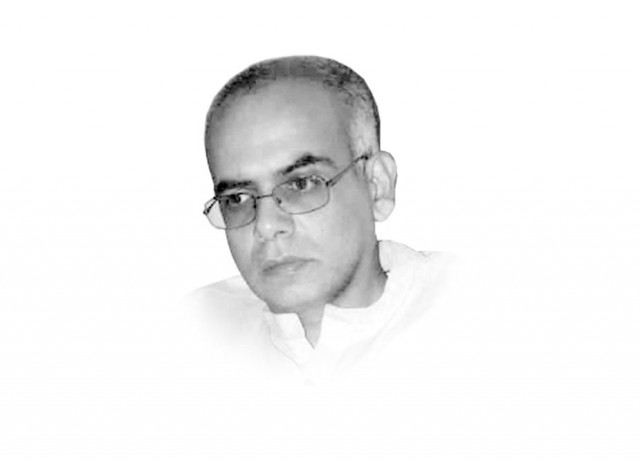To have and to have not
Instead of progressive tax policies, equitable asset distribution, policymaker continue to place faith in big business

The writer is a post-doctoral fellow at McGill University
The gap between the wealthy and the poor continues to grow. The latest research by the UNDP shows how global income inequality has reached alarmingly high levels, whereby the richest eight per cent of the world’s population earn half of the world’s total income, while the remaining 92 per cent of people (most of them residing in developing countries) are left with the other half.
Well-off countries can still afford to provide some relief to their citizens due to their position on the higher rungs of the global production hierarchy. But less prosperous countries have much less capacity to provide for even the basic needs of their citizenry, since their national elite capture most of the available scarce resources. A significant majority of the world’s population therefore resides in societies which are more unequal today than they were 20 years ago.
Moreover, myopic development policies and lopsided notions of globalisation have unleashed predatory financial and trade liberalisation processes, whose benefits get distributed very unequally across and within countries. Inadequate domestic policy choices are equally at fault for the deprivation evident within the developing world. Distorted budgetary priorities leave little room for investment in vital sectors such as health, education and social protection, in turn compounding disparity and undermining prospects of social mobility in developing countries like ours.
The pursuit of elusive growth-led, rather than redistributive, policies to address deprivation has not yet worked for Pakistan at least. Despite several periods of impressive economic growth, poverty remains unacceptably high. Instead of implementing progressive taxation policies or ensuring more equitable asset distribution, our policymakers continue to place faith in the ability of big business to create opportunities for the burgeoning urban populace. Similar confidence is placed in capital-intensive farming to boost agricultural yields, while a majority of the rural populace lacks access to cultivable land and agri-inputs needed to become productive farmers.
While redistribution remains very important to reduce inequalities, redistribution of assets is often not enough and its singular pursuit in practice can unleash sociopolitical havoc and often result in varied implementation problems, including patronage of political favourites, as was witnessed in many developing countries which have experimented with socialism.
Development thinkers are, therefore, now calling for simultaneous attempts to encourage inclusive forms of growth, which offer previously marginalised groups a chance to directly participate in the process of economic growth rather than waiting for its benefits to trickle down eventually.
Doing this, in effect, requires overcoming inequality-reproducing cultural norms and strengthening the political agency of disadvantaged groups in order to address socio-economic inequalities. Within our country-specific context, this would imply addressing lingering grievances of the Baloch. Taking bold steps would be difficult within a political environment where divisive and patronage-based authoritarian rule has become the dominant mode of governance rather than representative democracy. But then, those at the helm of affairs should be well prepared for contending with the political and social tensions which are reaching a boiling point due to the prevailing socio-economic inequalities.
Published in The Express Tribune, June 20th, 2014.
Like Opinion & Editorial on Facebook, follow @ETOpEd on Twitter to receive all updates on all our daily pieces.



















COMMENTS
Comments are moderated and generally will be posted if they are on-topic and not abusive.
For more information, please see our Comments FAQ